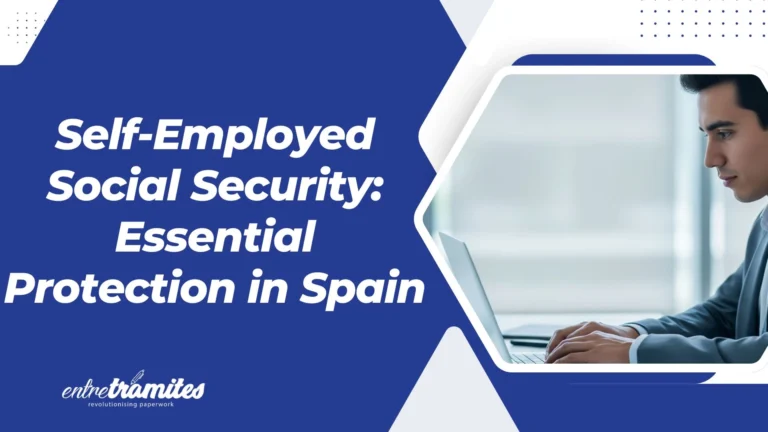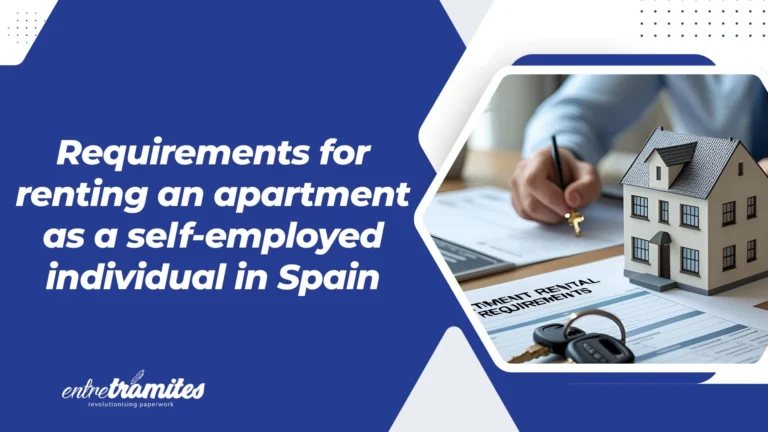For self-employed professionals in Spain, having the right social security coverage is not just an option—it’s a legal obligation. This mandatory protection, known as self-employed social security, is crucial for ensuring financial stability and access to healthcare in the event of an accident or illness.
This guide will explain the importance of self-employed social security, what it covers, and the updated regulations for 2025 that all freelancers must follow to stay compliant and secure.
What is Self-Employed Social Security?
Self-employed social security (known as Régimen Especial de Trabajadores por Cuenta Propia o Autónomos – RETA) is the system that protects freelancers and sole traders against professional contingencies, such as workplace accidents and occupational diseases. Through these contributions, self-employed workers gain access to medical, financial, and rehabilitation benefits, ensuring their activity and income are protected in case of incapacity. Since January 1, 2019, contributing for professional contingencies has been mandatory for all self-employed individuals affiliated with the RETA.
Is Self-Employed Social Security Coverage Mandatory?
Yes. The General Social Security Law in Spain (Ley General de la Seguridad Social) mandates that all self-employed professionals must contribute for professional contingencies. This coverage includes:
- Workplace accidents that occur during work hours or on the regular commute (in itinere).
- Illnesses directly related to professional activity.
Failure to meet this obligation can result in fines, loss of the right to benefits, and personal financial liability.
What Does the Self-Employed Social Security Contribution Include?
The obligatory self-employed social security contribution offers:
- Immediate healthcare assistance for workplace accidents or occupational diseases.
- Specialised rehabilitation and treatments.
- Financial benefits for temporary incapacity, calculated based on your contribution base.
- Indemnity payments for permanent partial or total incapacity.
- Subsidies and pensions in the event of death (widowhood, orphanhood).
An up-to-date example: A self-employed delivery driver who suffers a fall while on the job and is incapacitated for a month would have their medical costs and financial compensation for sick leave covered by their chosen mutual insurance company.
How is This Coverage Managed?
When registering for the RETA, self-employed individuals must choose a mutual insurance company that collaborates with the Social Security system (e.g., Fremap, Mutua Universal, Ibermutua). This company will manage your healthcare assistance and payment of benefits. When choosing, consider the company’s medical network, response times, and services offered.
Self-Employed Social Security Costs in 2025
The contribution for both common and professional contingencies is mandatory. The amount is determined by a new system of 15 brackets based on net income, with monthly fees ranging from approximately €200 to €598.
The maximum contribution base is €4,909.50 per month.
The percentage applied to the contribution base for 2025 is broken down as follows:
- 28.30% for common contingencies.
- 1.30% for professional contingencies.
- 0.90% for cessation of activity.
- 0.10% for professional training.
- 0.80% for the Intergenerational Equity Mechanism (MEI).
Practical tip: Consult with your gestoría or mutual insurance company about the risk level of your activity, as this directly affects the cost of your professional contingencies contribution.
What Happens if a Freelancer Doesn’t Comply?
Non-compliance with self-employed social security obligations can lead to:
- Fines from the Social Security authority.
- Loss of the right to specialised medical care or benefits.
- Direct liability for all medical and legal expenses.
- Possible disqualification from state aid or bonuses.
Frequently Asked Questions (FAQs)
Can I use private insurance instead of contributing to the RETA?
No. Private insurance cannot replace your mandatory contributions to the RETA for professional and common contingencies. Private policies can, however, provide additional protection, such as supplementing your income during an illness, but they are not a substitute for the official system.
Do new self-employed workers have to pay the full amount?
No. New freelancers can apply for the “flat rate” (tarifa plana), which offers a reduced monthly fee of €80 for the first 12 months of activity, regardless of income. This rate can be extended for an additional 12 months if their net income remains below the minimum wage.
Can I change my contribution base throughout the year?
Yes. With the new system based on real income, you can adjust your contribution base up to 6 times a year to align it with your business’s actual performance. This ensures you are contributing at the correct level, which directly impacts the benefits you will receive in the future.
The system of self-employed social security is a fundamental pillar for the protection and professional security of freelancers in Spain. It provides essential coverage against a range of risks and ensures your financial stability. By understanding the regulations and meeting your obligations, you can work with the peace of mind that comes from being properly protected.
If you need personalized assistance, at Entre Trámites we offer management and tax advisory services for freelancers and SMEs. You can contact us through this contact form for us to call you, or if you prefer, you can schedule a free consultation or write to us on WhatsApp.




